Introduction
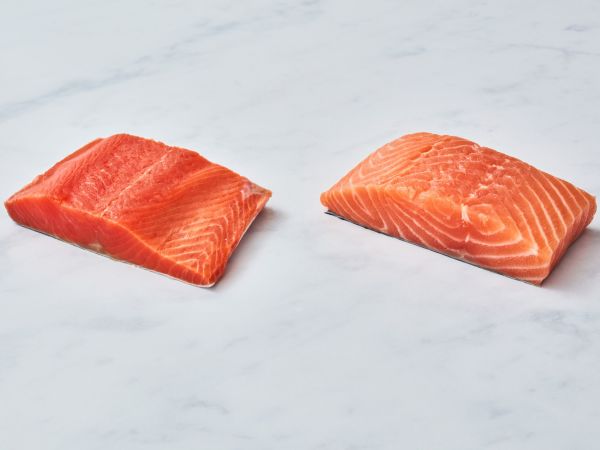
Frozen salmon is a popular choice among seafood enthusiasts for its affordability, convenience, and ability to retain flavor and nutritional value. Whether you prefer fresh or frozen salmon, incorporating this nutritious fish into your diet can offer numerous health benefits. In this article, we will explore the nutritional profile of frozen salmon, compare it to fresh salmon, discuss the quality and safety of frozen salmon, and provide tips on cooking methods. By understanding the nutritional considerations of frozen salmon, you can make informed choices to support a balanced and healthy lifestyle.
Why Is Frozen Salmon A Popular Choice?
Frozen salmon is a popular choice among seafood enthusiasts due to its affordability, convenience, and ability to retain flavor and nutritional value. Unlike fresh salmon, which may be limited by seasonality and availability, frozen salmon is always readily accessible. It allows consumers to enjoy the health benefits of salmon throughout the year without compromising on quality. Additionally, frozen salmon is often processed and packaged immediately after being caught, ensuring that it maintains its freshness and nutritional properties. This makes it a convenient and reliable option for individuals looking to incorporate salmon into their diet. [2]
Benefits Of Including Salmon In Your Diet
Salmon offers numerous benefits when included in your diet. It is rich in omega-3 fatty acids, which are essential for brain health and can reduce the risk of heart disease. Additionally, salmon is a great source of high-quality protein, which helps with muscle growth and repair. It also contains important vitamins and minerals like vitamin B12, vitamin D, and selenium. The anti-inflammatory properties of salmon can aid in reducing inflammation and promoting overall well-being. Including salmon in your diet can contribute to a balanced and healthy lifestyle. [6]
Nutritional Profile Of Frozen Salmon
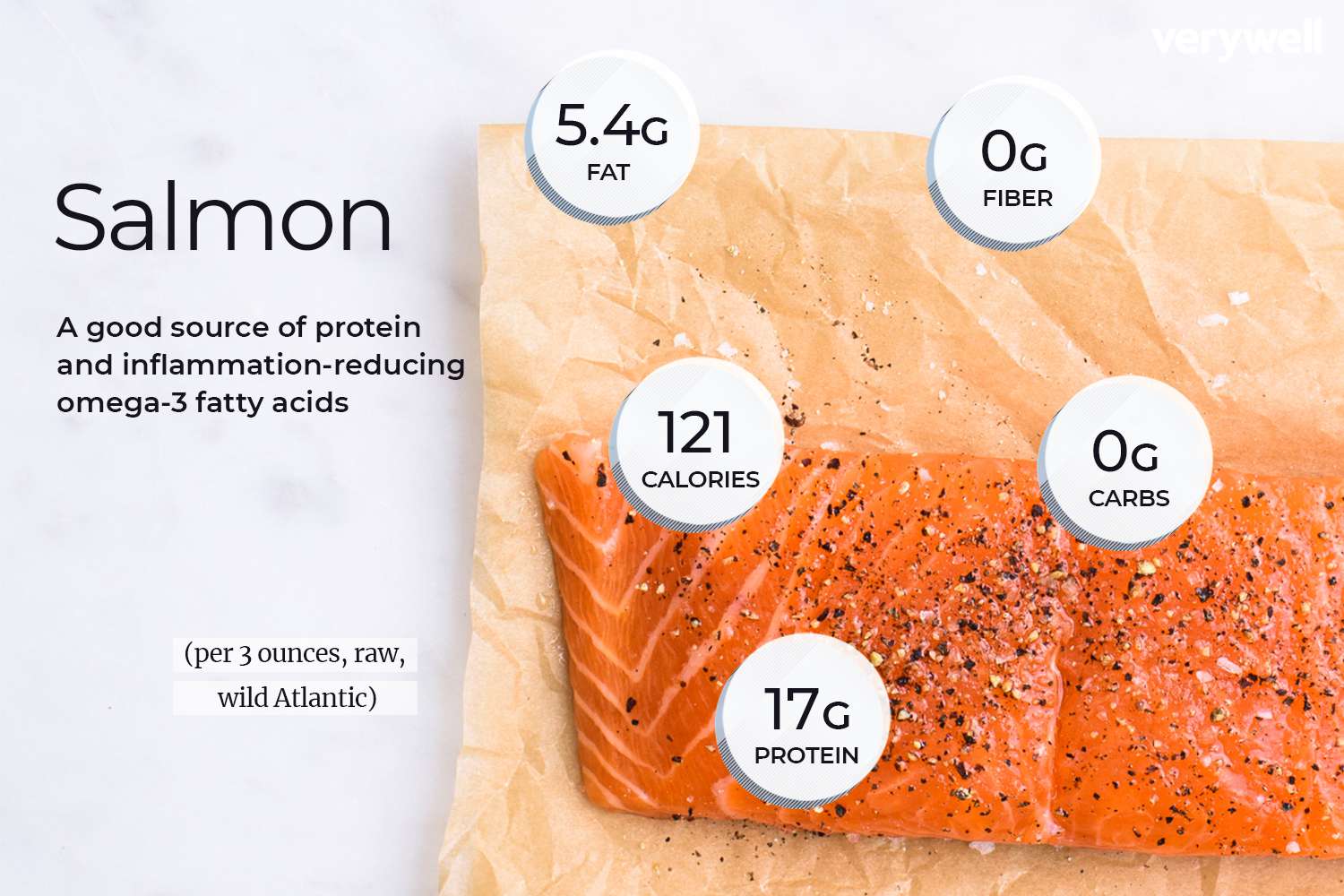
Frozen salmon is a nutrient-dense food that offers a wide range of important nutrients. It is rich in high-quality protein, omega-3 fatty acids, vitamin B12, vitamin D, and selenium. These nutrients play crucial roles in supporting brain health, reducing the risk of heart disease, promoting muscle growth and repair, and boosting overall well-being. Frozen salmon also contains other essential vitamins and minerals that contribute to a balanced and healthy diet. Including frozen salmon in your meals can provide you with a variety of nutrients that are beneficial for your overall health.
Overview Of Essential Nutrients Found In Frozen Salmon
Frozen salmon is rich in essential nutrients that are beneficial for overall health. It is a great source of high-quality protein, which is important for muscle growth and repair. Additionally, frozen salmon is packed with omega-3 fatty acids, which are known for their anti-inflammatory properties and their role in brain health. It is also an excellent source of vitamin B12, which is crucial for red blood cell production and nervous system function. Other important nutrients found in frozen salmon include vitamin D, selenium, niacin, and phosphorus. Including frozen salmon in your diet can provide a wide range of important nutrients that support overall well-being.
Health Benefits Of Omega-3 Fatty Acids
Omega-3 fatty acids, found abundantly in salmon, offer numerous health benefits. Research suggests that these essential fatty acids play a crucial role in reducing inflammation throughout the body, which can help manage chronic conditions such as heart disease, arthritis, and certain types of cancer. Omega-3s are also known to support brain health, improving cognitive function and reducing the risk of mental disorders like depression and Alzheimer’s. Additionally, these fatty acids promote heart health by reducing triglyceride levels and improving overall cardiovascular function. Including frozen salmon in your diet can provide a significant dose of omega-3s to support your overall well-being.
Comparison Of Fresh And Frozen Salmon
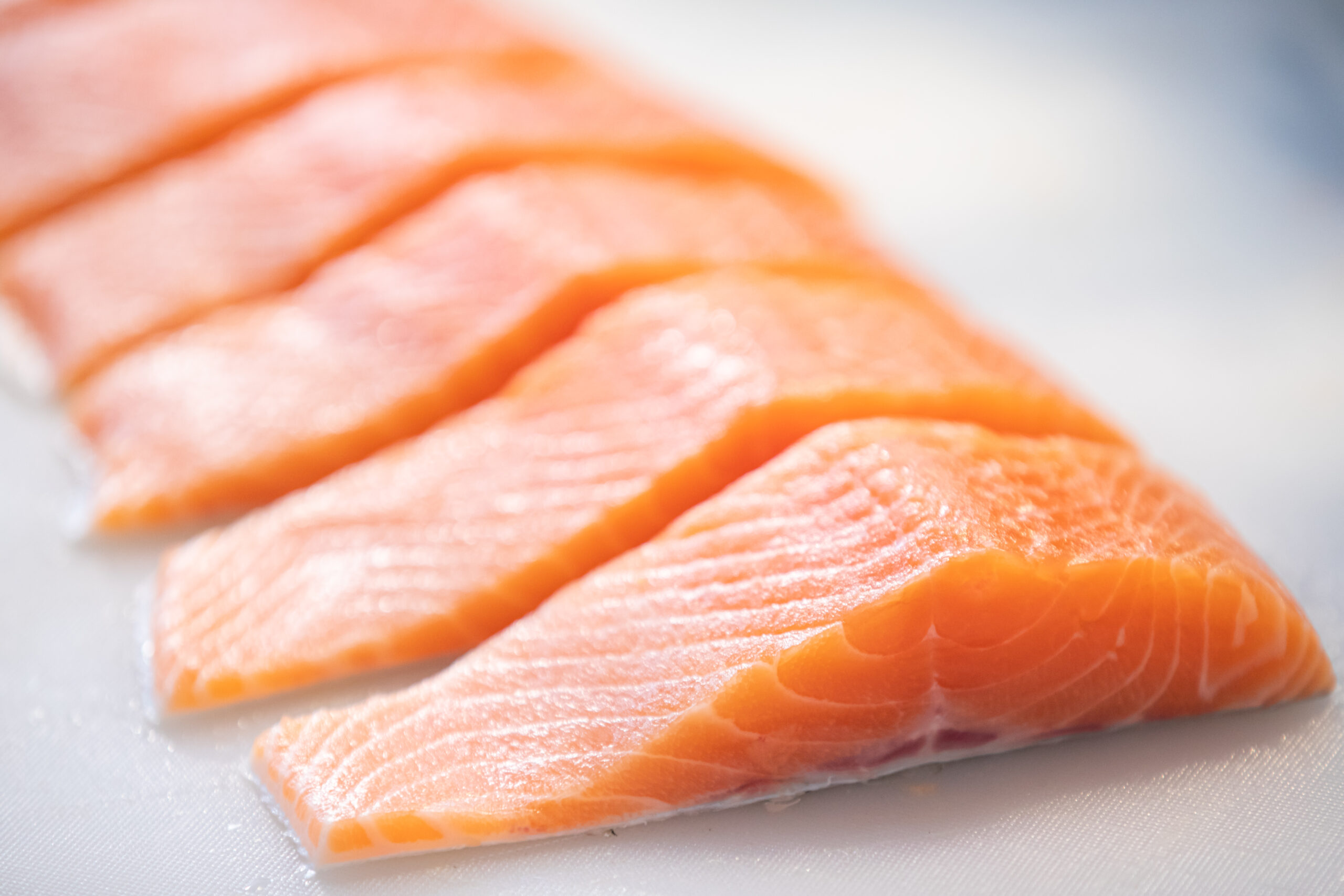
When comparing fresh and frozen salmon, there are a few key factors to consider.
- Nutritional Differences: Fresh and frozen salmon have similar nutrient profiles, including high levels of omega-3 fatty acids. However, fresh salmon may have a slight advantage in terms of vitamin content due to the natural degradation that can occur during freezing.
- Convenience and Availability: Frozen salmon is a more convenient option, as it can be stored for longer periods without compromising taste or nutritional value. Fresh salmon may not be readily available year-round and can be more expensive.
In the end, the choice between fresh and frozen salmon depends on personal preferences and availability.
Nutritional Differences Between Fresh And Frozen Salmon
When comparing fresh and frozen salmon, there are minimal nutritional differences. Both varieties contain high levels of omega-3 fatty acids, which are beneficial for heart health and brain function. However, fresh salmon may have a slight advantage in terms of vitamin content due to natural degradation that can occur during freezing. Nevertheless, the overall nutrient profile of frozen salmon remains highly nutritious and provides essential vitamins and minerals. Whether choosing fresh or frozen salmon, incorporating this fish into your diet can contribute to a well-rounded and healthy eating plan.
Impact Of Freezing On Nutrient Retention
The freezing process can have a minimal impact on the nutrient retention of salmon. While freezing may cause some degradation and changes in texture, the essential nutrients, such as omega-3 fatty acids, remain relatively stable. Freezing helps to preserve the nutritional content of salmon by slowing down enzymatic reactions and microbial growth. However, it is important to note that the length of time the salmon is frozen can affect the overall quality and nutrient retention. Therefore, it is recommended to consume frozen salmon within a reasonable period to maximize its nutritional benefits.
Quality And Safety Of Frozen Salmon
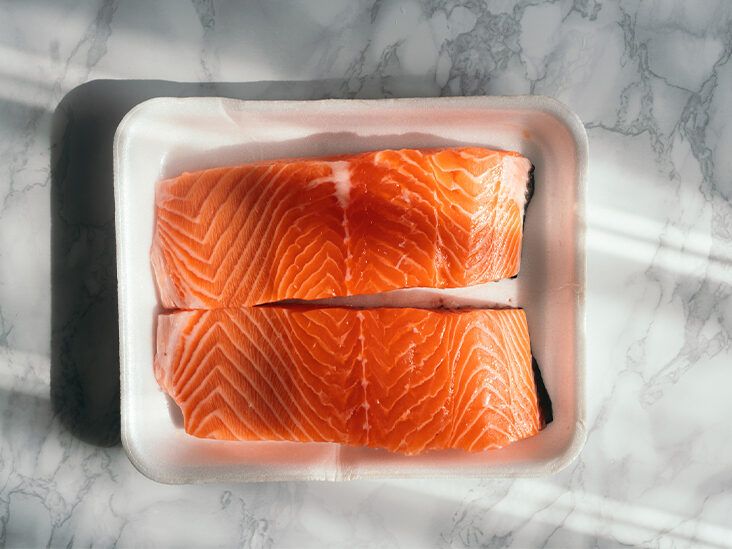
When it comes to the quality and safety of frozen salmon, consumers can rest assured that proper measures are taken to maintain its freshness and nutritional value. Frozen salmon undergoes rigorous processing and packaging techniques to ensure its quality. It is important for consumers to select high-quality frozen salmon from reputable sources. Look for certifications such as the Best Aquaculture Practices (BAP) label to ensure sustainable and safe practices. Additionally, it is essential to follow proper cooking methods and storage guidelines to maintain the quality and safety of frozen salmon.
How Is Frozen Salmon Processed And Packaged?
Frozen salmon undergoes a careful processing and packaging process to ensure its quality and safety. After being caught, the salmon is quickly cleaned and filleted to remove any scales or bones. It is then carefully inspected for any defects or contaminants. The fillets are then individually flash-frozen, which involves rapidly lowering their temperature to preserve their freshness. Once frozen, the fillets are carefully packaged in airtight and moisture-resistant packaging to prevent freezer burn and maintain their quality. This packaging helps to protect the salmon from oxidation and freezer odors, ensuring that it retains its nutritional value until it is consumed.
Tips For Selecting High-quality Frozen Salmon
When selecting high-quality frozen salmon, there are a few tips to keep in mind.
- Check the packaging: Look for well-sealed packaging that is intact and free from any tears or damage. Make sure the packaging is airtight and moisture-resistant to prevent freezer burn.
- Read the label: Look for labels that indicate the salmon is wild-caught or sustainably farmed. This ensures that the salmon is sourced responsibly and minimizes potential contamination.
- Examine the appearance: Choose fillets that have a vibrant color and are free from any discoloration or dark spots. Avoid fillets that appear dry or have ice crystals on the surface.
- Consider the smell: The frozen salmon should have a mild, fresh smell. Avoid any fishy or strong odors, as this may indicate that the salmon is not fresh.
- Check for certification: Look for certifications such as the Marine Stewardship Council (MSC) certification, which guarantees the fish is sustainably caught.
By following these tips, you can select high-quality frozen salmon that is safe, nutritious, and delicious.
Cooking Methods For Frozen Salmon
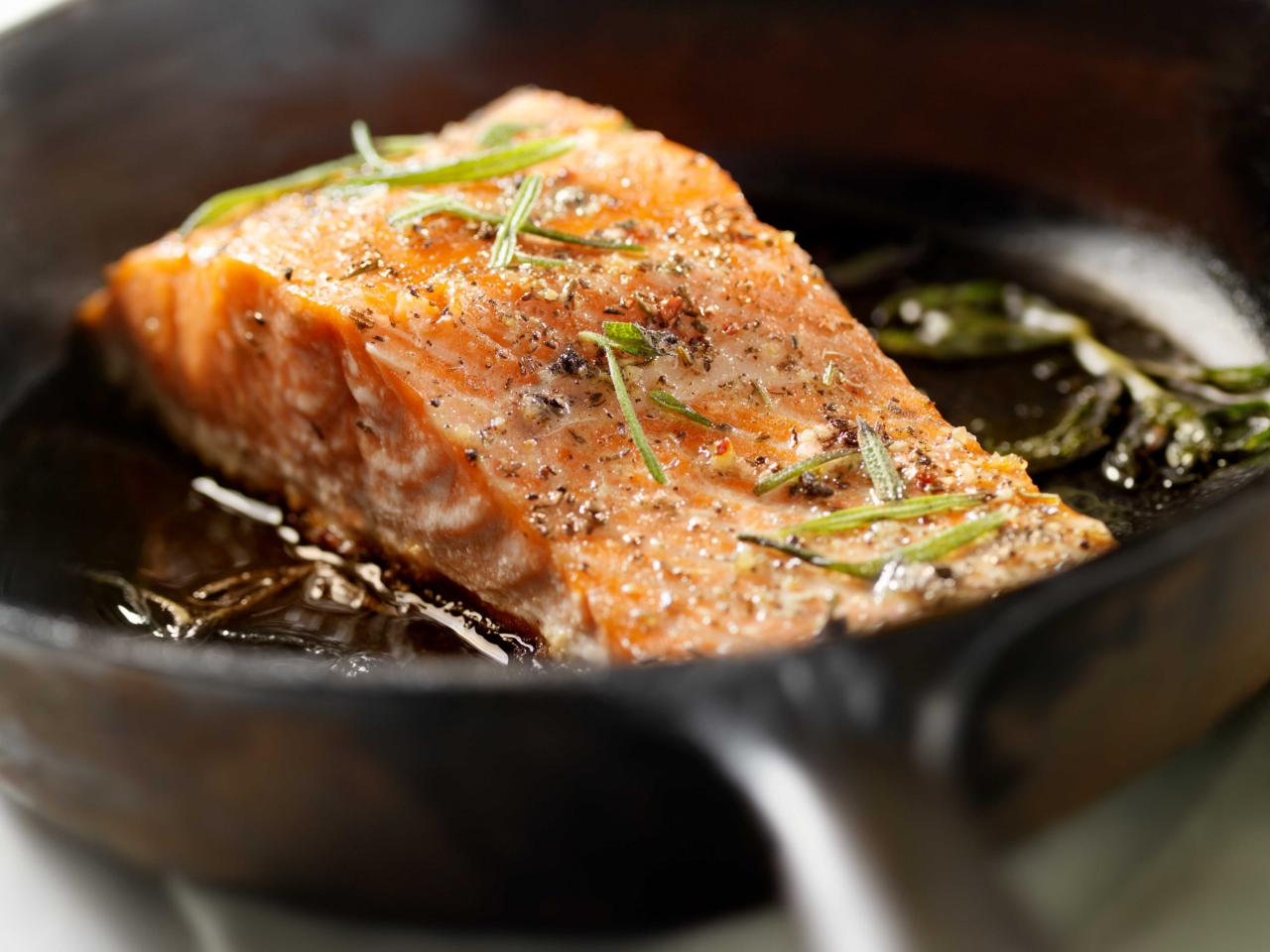
When it comes to cooking frozen salmon, there are several methods you can use to achieve a delicious and flavorful meal. Here are some recommended cooking methods:
- Baking: Preheat your oven to 375°F (190°C) and place the frozen salmon fillets on a baking sheet. Bake for about 20 minutes or until the salmon is cooked through and flakes easily with a fork.
- Grilling: If you prefer a smoky and charred flavor, you can grill your frozen salmon. Simply thaw the fillets slightly, then brush them with olive oil and season with salt and pepper. Grill the salmon over medium heat for about 5-7 minutes per side.
- Pan-searing: Heat a skillet over medium-high heat and add a small amount of oil. Place the frozen salmon fillets in the skillet and cook for about 4-6 minutes per side, until browned and cooked to your desired doneness.
- Steaming: Steaming is a gentle cooking method that helps to retain the natural moisture and flavors of the salmon. Place the frozen fillets in a steamer basket and steam for about 10-12 minutes or until the salmon is opaque and flakes easily.
Remember to adjust the cooking time based on the thickness of the fillets and always ensure that the salmon is cooked to a minimum internal temperature of 145°F (63°C) for safety. Enjoy your delicious and nutritious frozen salmon meal!
Best Practices For Cooking Frozen Salmon
When cooking frozen salmon, there are a few best practices to keep in mind. First, it is important to properly thaw the salmon before cooking. This can be done by placing the frozen fillets in the refrigerator overnight or submerging them in cold water for about 30 minutes. Additionally, seasoning the salmon with herbs, spices, and a squeeze of lemon juice can enhance its flavor. It is also recommended to use a cooking method that retains moisture, such as baking or steaming, to ensure the salmon stays tender and delicious. Finally, be sure to adjust the cooking time based on the thickness of the fillets to avoid overcooking.
Retaining Nutritional Properties During Cooking
Retaining the nutritional properties of frozen salmon during the cooking process is essential to maximize its health benefits. To preserve the omega-3 fatty acids and other important nutrients, it is recommended to use gentle cooking methods such as baking or steaming. Avoid excessive heat and overcooking, as it can lead to nutrient loss. Additionally, using minimal oil or butter and avoiding heavy sauces can help maintain the nutritional integrity of the salmon. By cooking frozen salmon with care, you can ensure that you are getting all the essential nutrients it has to offer.
Conclusion
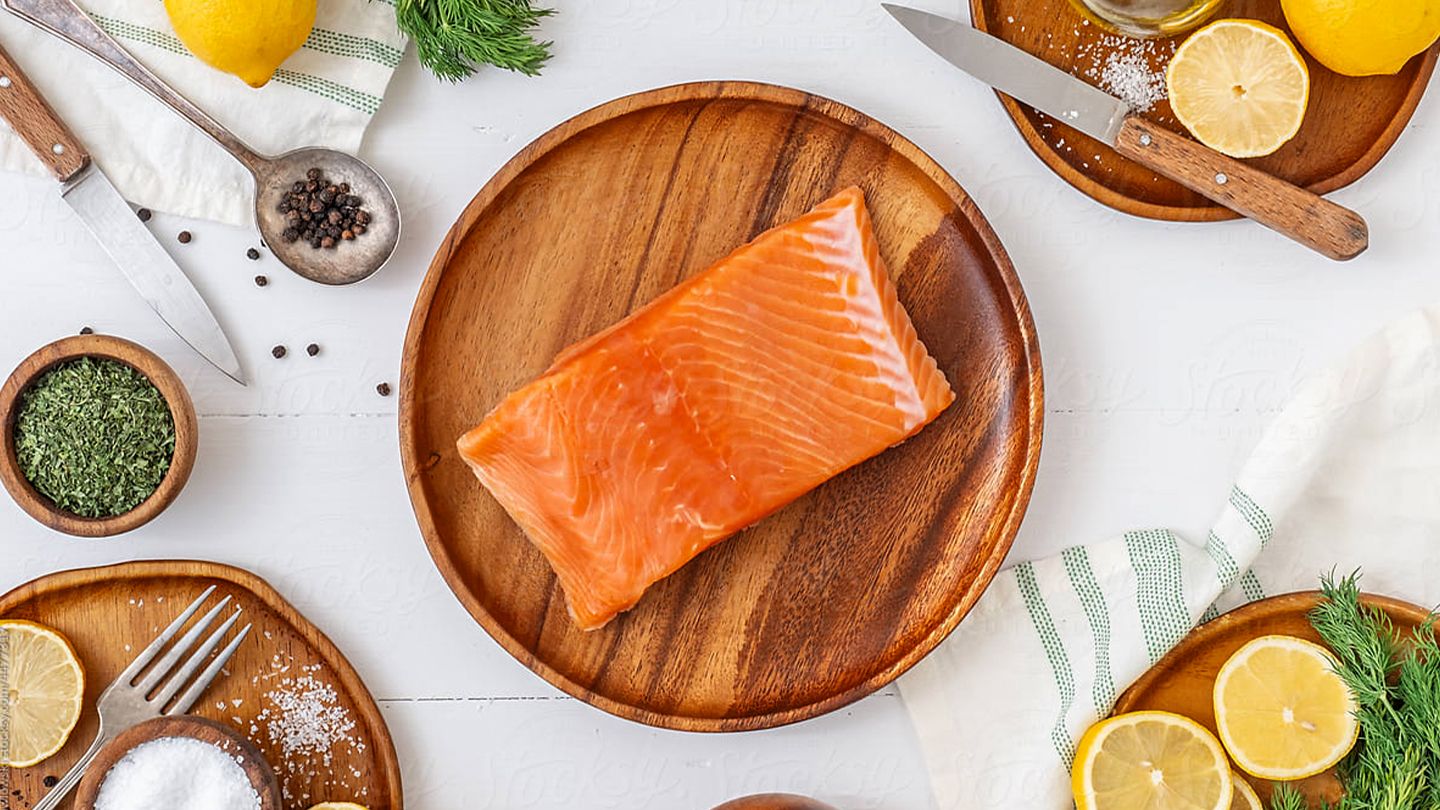
In conclusion, frozen salmon can be a healthy and convenient option for incorporating salmon into your diet. It retains its nutritional value if handled properly during transportation and storage. While fresh salmon may have a slight edge in terms of taste and texture, frozen salmon is just as nutritious and can be more cost-effective. Whether you choose fresh or frozen salmon, it is important to consider the quality and freshness of the product. By including salmon in your diet, you can enjoy its numerous health benefits, especially the omega-3 fatty acids it provides.
Final Thoughts On The Nutritional Considerations Of Frozen Salmon
Frozen salmon is a healthy and convenient option for incorporating nutrient-rich seafood into your diet. While it may have a slight disadvantage compared to fresh salmon in terms of taste and texture, frozen salmon retains its nutritional value if handled properly during transportation and storage. It is just as rich in omega-3 fatty acids and other essential nutrients. Whether you choose fresh or frozen salmon, ensure that you are purchasing high-quality products from reputable sources. By including salmon in your diet, you can enjoy its numerous health benefits and support your overall well-being.
Incorporating Frozen Salmon Into A Balanced And Healthy Diet
Incorporating frozen salmon into a balanced and healthy diet is an excellent way to boost your intake of essential nutrients. You can easily include frozen salmon in various dishes such as salads, stir-fries, or grilled meals. Pair it with a side of vegetables or whole grains to create a well-rounded and nutritious meal. Aim to incorporate salmon into your diet at least twice a week to reap the benefits of its omega-3 fatty acids and other valuable nutrients. Remember to choose high-quality frozen salmon from reputable sources for the best results.
FAQ: Is Frozen Salmon Healthy?
Q: Is frozen salmon as healthy as fresh salmon?
A: Yes, frozen salmon can be just as healthy as fresh salmon. The freezing process does not significantly affect the nutritional content of the fish.
Q: What are the health benefits of consuming frozen salmon?
A: Frozen salmon is an excellent source of protein, omega-3 fatty acids, vitamins (such as vitamin D), and minerals (including selenium). These nutrients are known to promote heart health, brain function, lower inflammation, and support overall well-being.
Q: Can frozen salmon spoil or become unsafe to eat?
A: Frozen salmon, if stored properly, is less likely to spoil compared to fresh salmon. However, it is important to follow safe food handling guidelines and check for any signs of freezer burn or off odors before consuming.
Q: Are frozen salmon fillets as nutritious as whole frozen salmon?
A: Both frozen salmon fillets and whole frozen salmon have similar nutritional profiles. However, the fillets may have slightly different proportions of fats and protein compared to the whole fish.
Q: How should I thaw frozen salmon?
A: The best way to thaw frozen salmon is by placing it in the refrigerator overnight. Alternatively, you can use the defrost function on your microwave or place the sealed salmon in a bowl of cold water. Avoid thawing at room temperature to prevent bacterial growth.
Q: Can frozen salmon be just as flavorful as fresh salmon?
A: Yes, when properly cooked, frozen salmon can be just as flavorful as fresh salmon. It is essential to season and prepare it well to enhance its taste. Proper cooking techniques, such as grilling, baking, or sautéing, can help bring out the natural flavors.
Q: Are there any risks associated with consuming frozen salmon?
A: Frozen salmon carries similar risks as fresh salmon when it comes to potential contamination with parasites or bacteria. To ensure safety, it is recommended to purchase frozen salmon from reputable sources and cook it thoroughly before consumption.
Q: Is frozen wild-caught salmon better for health than farm-raised salmon?
A: Many health experts believe that wild-caught salmon, whether fresh or frozen, is generally more nutritious compared to farm-raised salmon. Wild-caught salmon often has a higher omega-3 fatty acid content due to the different diets and lifestyles of the fish.
Q: Can frozen salmon be used in cooking recipes that call for fresh salmon?
A: Yes, frozen salmon can be used in various cooking recipes that require fresh salmon. Just make sure to thaw it properly before using it in the recipe. The texture and flavor of the cooked salmon may be slightly different, but it can still be delicious.
Q: How long can frozen salmon be safely stored?
A: When stored at 0°F (-18°C) or below, frozen salmon can be safe to consume for up to 9 months. However, for the best flavor and quality, it is generally recommended to consume it within 3-6 months of freezing.
Remember, if you have any specific concerns or health conditions, it’s always a good idea to consult with a healthcare professional or a registered dietitian for personalized advice.

A small, independently run fish and chip shop using quality ingredients cooked freshly in our kitchen to ensure great tasting food. All of our drinks are in glass bottles, and all of our takeaway packaging is recyclable or compostable to help reduce our impact on the environment.